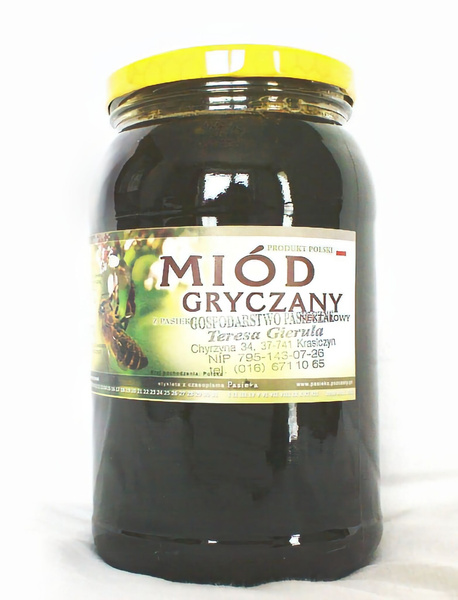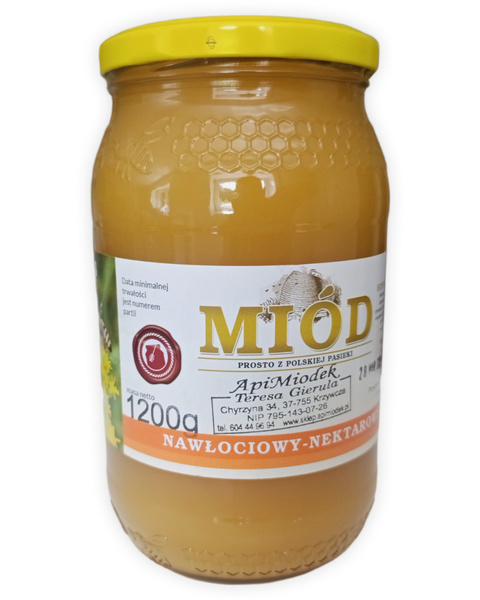The sweetest thing: 5 surprising health benefits of honey you need to know about!

If you're looking for a natural sweetener that's packed with health benefits, look no further than honey! Bees have been producing honey for millions of years, and people have been enjoying its sweet taste and healing properties for just as long. In this article, we will explore five surprising health benefits of bee honey that you need to know about.
Introduction to bee honey
Honey is a sweet, sticky substance that bees produce by collecting nectar from flowers and storing it in combs. The nectar is broken down by enzymes in the bees' stomachs and then excreted and stored in the honeycombs. Bees use honey as a food source during the winter months when there are no flowers,
from which they could collect nectar.
Humans have been harvesting honey from beehives for thousands of years. In addition to its sweet taste, honey has been used for medicinal purposes in many cultures. Honey has antibacterial properties and can be used to heal wounds and other ailments.
The nutritional value of bee honey
Honey is a natural sweetener
which is full of vitamins and minerals. One tablespoon of honey contains about 64 calories and 17 grams of carbohydrates, including sugars such as glucose and fructose. Honey also contains small amounts of vitamins and minerals such as vitamin B6, niacin, riboflavin, calcium, iron and potassium.
Health benefits of bee honey
The role of honey in strengthening immunity
Honey has been shown to have immunomodulatory properties, which means it can help regulate the immune system. Honey contains several compounds that have antibacterial properties and can help fight infection. Honey also contains antioxidants that can help reduce inflammation in the body.
Honey's ability to soothe coughs and sore throats
Honey has been used as a natural cough and sore throat remedy for centuries. In fact, a study published in the Archives of Pediatrics and Adolescent Medicine found that honey was more effective at reducing coughs in children than over-the-counter cough suppressants.
Honey has a soothing effect on the throat and can help reduce inflammation and irritation.
Antioxidant properties of honey
Honey contains several compounds that have antioxidant properties, including flavonoids, phenolic acids, and ascorbic acid. Antioxidants help protect the body from free radical damage,
that can contribute to aging and disease. The antioxidants in honey may help reduce inflammation, improve heart health, and even protect against cancer.
Wound healing properties of honey
Honey has been used as a natural wound remedy for centuries.
In fact, the ancient Egyptians used honey to heal wounds and prevent infection. Honey has antibacterial properties that can help prevent infection and promote healing. Honey also helps keep the wound moist, which can help speed up the healing process.
Benefits of honey for digestive health
Honey has several benefits for digestive health. It can help soothe an upset stomach and reduce inflammation in the digestive tract. Honey also contains prebiotics that can help promote the growth of beneficial bacteria in the gut. This can help improve digestion and overall gut health.
Conclusion: Why you should include bee honey in your diet
As you can see, bee honey is more than just a sweetener. It is full of vitamins and minerals, has antibacterial and antioxidant properties, and may even help with wound healing and improve digestive health.
So why not start including honey in your diet today? You can use it as a sweetener in tea or coffee, sprinkle it on yogurt or oatmeal, or use it as a natural cough and sore throat remedy. Your taste buds and body will thank you!
Act now!
Try including bee honey in your diet today and experience its sweet taste and health benefits for yourself!
Recommended

Buckwheat Honey 1.2 kg PREMIUM

Goldenrod honey 1.2 kg PREMIUM

